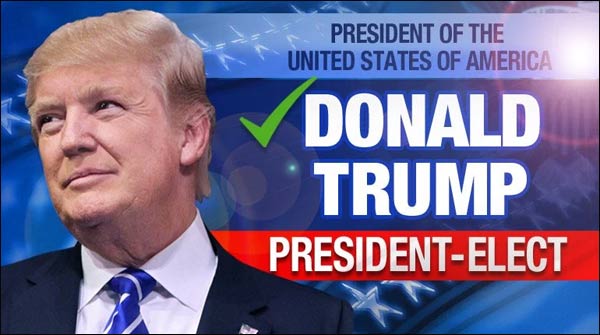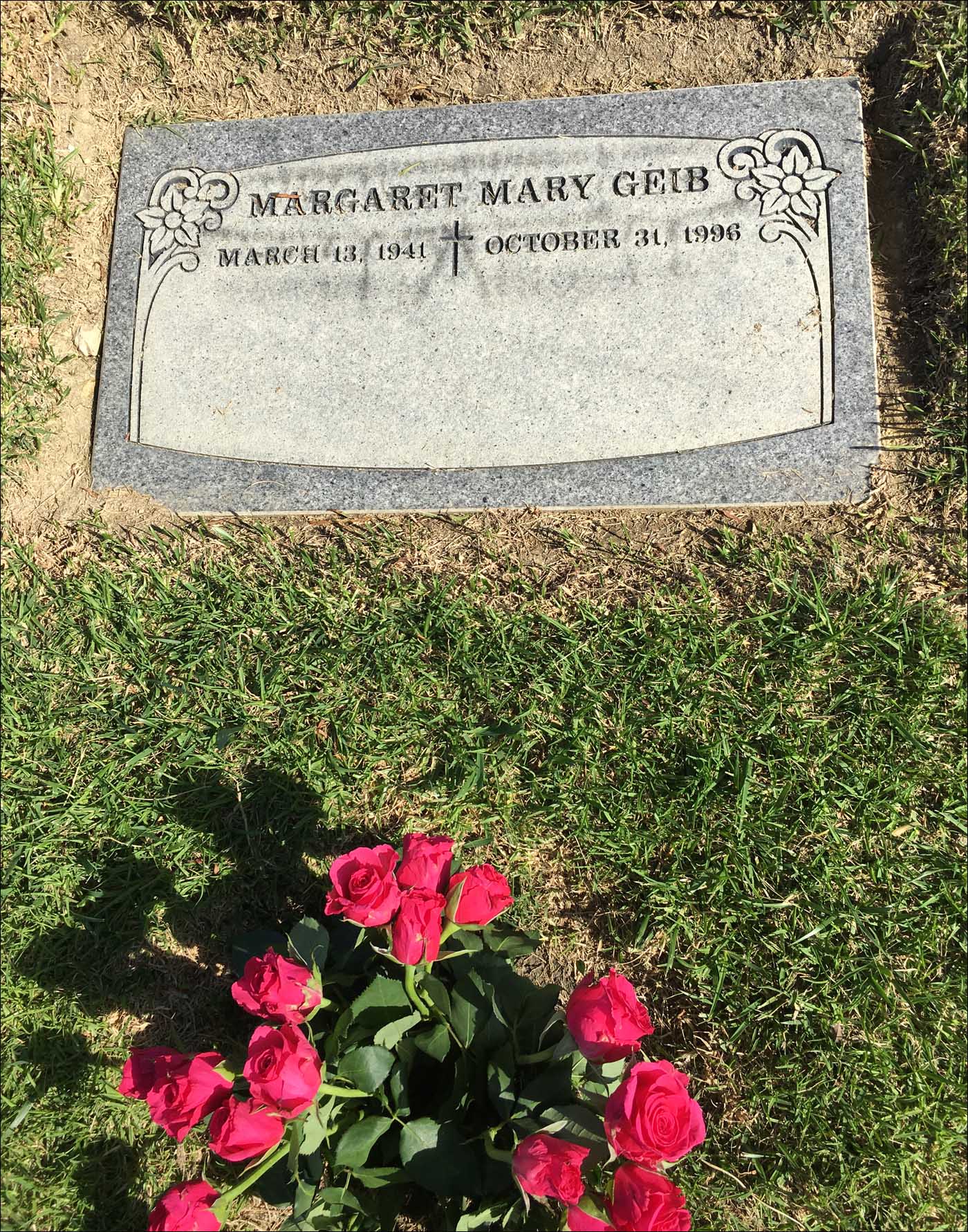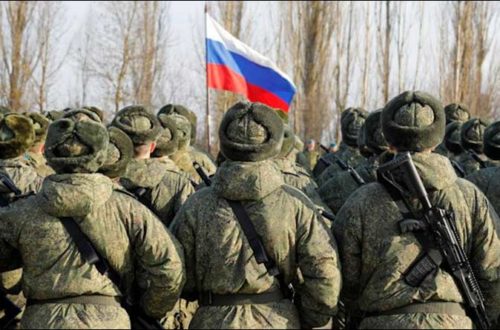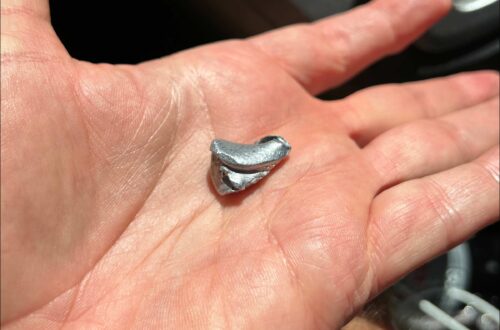Yes, it happened.
Back in 2000 I was incredulous that my fellow Americans flocked to see Charlies’ Angels and wrote about this in my essay “Revenge of the Political Center.” I thought the idea of a Charlie’s Angles movie ridiculous at face value. Plenty of other Americans voted with their pocketbooks and bought tickets to see that execrable movie. It was a hit. Might I be similarly mistaken in my perceptions of my fellow Americans and who they would vote for as president?
The answer is: yes.
My fellow Americans have elected Donald Trump as President of the United States. True, he did not win in the popular vote (Clinton 65.2 million votes to Trumps’ 62.6 million). But Trump did win where it counts: in the Electoral College, by a vote of 306 to 242.
November 8, 2016 was a surreal evening for me. After being told by the New York Times, CNN, and other media outlets that Donald Trump had almost no chance of winning, he won. But it was a very close election and the country is badly divided. President Trump squeaked into office and can hardly claim a “mandate” to rule from the American people. But some 62,000,000 Americans did vote for Trump.
I can hardly believe it. Who in the world would vote for Donald Trump?
I guess there are some principled conservatives and independents with college degrees who hated Hillary Clinton and the Washington D.C. establishment so much they voted for Trump while holding their nose.
But there were PLENTY of Republicans in places like Utah, South Carolina, and Texas who voted the Republican Party, no matter who they put on the ticket. They voted unreflectively; they voted the party line. These doctrinaire Republicans would never ever vote for a Democrat on principal. They were under few illusions that Trump was a great presidential candidate, but he was the Republican and he was better than Hillary, they concluded (or so they persuaded themselves).
And then there plenty of rural voters with low levels of education who voted for Donald Trump and his promise to change the status quo in Washington D.C. Hillary Clinton was “business as usual” and Trump would “make America great.” It is this last group of “white working class” voters who gave the election to Donald Trump in a few states. For them, Trump was the “change candidate.” They didn’t look much deeper than that.
I remember sitting on my couch viewing the electoral map and watching the “conservative” rural areas of Wisconsin, Michigan, Pennsylvania, Florida, and North Carolina overwhelm the “liberal” urban areas inside the state and give those crucial “battleground” states to Donald Trump. Even while losing the majority vote, Trump won the election by winning the white working class vote in rural areas of a handful of important states on November 8th, 2016. In the end, it was that simple.
“Fuck middle America!” was my initial reaction in watching this happen. This “white working class” in rural areas has never been my favorite demographic: pick-up trucks, fundamentalist Christianity, country music, gun rights, and no more than a high school diploma. Unfortunately, they are some 40% of the electorate. It was enough to tip the election in favor of Trump in the Electoral College, if not in the popular vote. I guess this is democracy. Sigh. I guess it should have been a strong warning sign for me when Hillary Clinton lost to Bernie Sanders in many of these “Rust Belt” states during the Democratic primaries. Many feminists might have slobbered with enthusiasm at the thought of a first female president in Hillary Clinton, but few others seemed to share their passion.
I never found much enthusiasm for Hillary Clinton as a candidate. But she was an easy choice over Donald Trump. Many rural Americans disagreed. They seemed to harbor a stronger antipathy for Hillary Clinton. Sigh.
Hillary Clinton? Donald Trump? We Americans could hardly do worse in 2020.
One final reflection: These “white working class” voters in Wisconsin, Michigan, and Pennsylvania who flocked to Donald Trump believed they were voting for “change,” whatever that might mean. Trump has been pretty vague about specific policies he would pursue; many ideological conservatives disbelieved that he was a “conservative” at all. It seemed in the end that Trump was a third party candidate who took over the Republican Party. Those Wisconsin and Michigan voters who voted for Trump were not exactly sure what he stood for – but Trump stood for THEM, or so they thought (and voted).
Watch what actually happens now that he is in power. Trump will take care of himself. Take a look at upstate Wisconsin, Michigan, or Pennsylvania and see if life is all that different in 2020 compared to 2016. And look at the mess this absolute amateur Donald Trump makes in the presidency.
I hope I am wrong. But I don’t think I am. All the warning signs about Trump were there during the campaign. America had been warned.
But the white working class of Middle America decided to have a temper tantrum on November 8th, 2016. They were seduced. They voted emotionally. They will prove to have been duped. Everyone will live with the consequences.
On the other hand, I live in California and work in education. One would be hard-pressed to find a more “liberal” milieu. (New York education? Chicago education? Portland, OR education? Madison, WI education?) I was unhappy and even dismayed by the election results, but I was not crushed or clinically depressed by them. I have had former students who posted to social media that Trump’s election was a tragic, life-defining event akin to a family member dying. I wanted to respond, “If you actually had a family member die, you would not make that claim.” I was mystified at a lack of resilience and perspective that many Millennials showed in the wake of the Trump win. I might receive the blow and say, “I am a big boy and we will see this through.” Too many young people have looked at this as almost a personal insult to them and declared that the sky is falling. As if it were all about them personally. They declare that “fascism” is here in America and the kristallnacht is right around the corner. Seriously.
Maybe they can be excused by their relative youth. There were protests and even riots after the election. Students walked out of classes en masse in protest. More pissed off, unhappy people. Sigh.
Perspective everyone.
One final comment: I have heard some Californians, some who I know personally, talk about how our state should seek to secede from the Union rather than accede to the presidency of Donald Trump. I suspect much of this talk is tongue-in-cheek, not to be taken seriously. But they claim that a pro-environmental and multicultural state like California with a vibrant and future focused technology center in Silicon Valley is incompatible with a “white nationalist” Trump leading a Republican Party ascendant in much of the rest of the United States. The incongruence between California culture and Trump’s Washington D.C. make a divorce logical for California, some claim. Local California officials promise not to help any federal authorities deport anyone in the country illegally.
They have that right. But they don’t have the right to interfere with federal law or contradict it. States’ rights are subordinate to federal control. This has been settled in American history, or so I had thought.
So even as I voted for Hillary Clinton and am opposed to Donald Trump from head to toe, I am alarmed by this secessionist talk. As a history teacher, I know fully well what happened between 1861 and 1865 – and the changed nature of the Union after that war, what that conflict supposedly settled about our nation. I would fight secession. With my personal firearm if necessary, I would fight for the United States. Just like I hope I would have done if I had lived in Tennessee in 1862. Remained loyal to the Union with my own rifle, if necessary.
Keep that in mind, my fellow California liberals.




